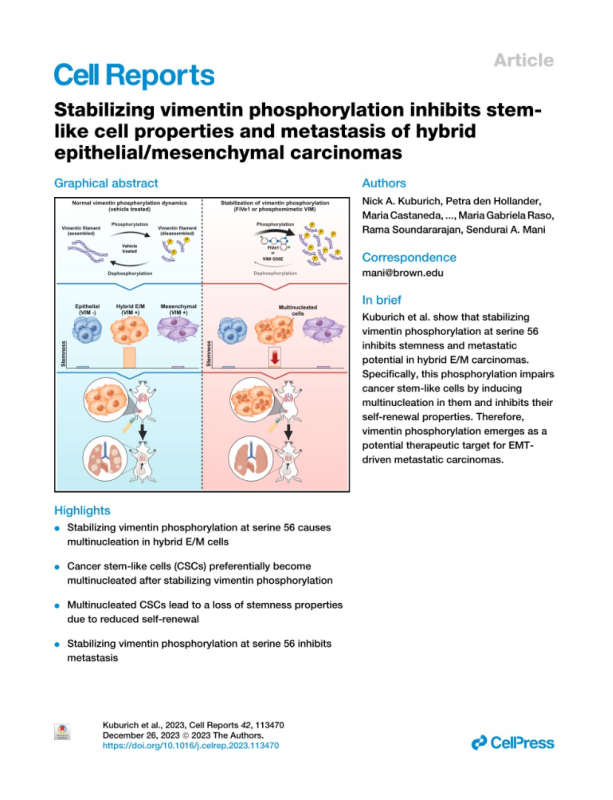Sendurai Mani, shared on LinkedIn:
“Exploring the biology of carcinomas with the migratory capacity to target them more effectively.
Most cancers are carcinomas arising from epithelial cells. These cells possess a rigid internal “skeleton” made of a protein called cytokeratin, complemented by cell-cell adhesion proteins like E-cadherin. In contrast, mesenchymal cells exhibit a more flexible structure, primarily due to their cytoskeletal protein, ‘vimentin.’ Imagine mesenchymal cells as the Olympic runners of the cellular world – remarkably agile and mobile!
Typically, carcinomas remain confined, anchored by their rigid cytokeratin structure and cell-cell adhesion proteins. However, occasionally, they transform into Olympic runners by reverting to their latent embryonic program, known as epithelial to mesenchymal transition or EMT. This metamorphosis enables them to acquire many changes, including a protein called vimentin, empowering them to spread, gain stem-cell-like properties, become resistant to treatment, and potentially recur even after treatment.
Upon acquiring vimentin, these carcinomas transition from being manageable to nearly undefeatable. My lab is committed to understanding the biology of these transformed carcinoma cells and developing strategies to stop their progression.
My team, led by Nick Kuburich, Ph.D. in collaboration with Petra den Hollander, Maria Castaneda, Mika Pietilä, Harsh B., Francisco Martínez-Peña, Tanvi Visal, Breanna Demestichas, Joanna Joyce M., Matthew Rosolen, Thiru Sabapathy, Dhiraj Kumar, Filippo G. Giancotti, Luke Lairson, Maria Gabriela Raso, Rama Soundararajan, and many other amazing collaborators, investigated the biology of these cells’ cunning tactics and sought ways to outwit them. The findings of these studies are published in the latest issue of Cell Reports. We extend our heartfelt gratitude to Cell Reports, its editors, and the anonymous reviewers, who played a pivotal role in refining our study.”

For the article attached in the post click here.
Source: Sendurai Mani/LinkedIn


